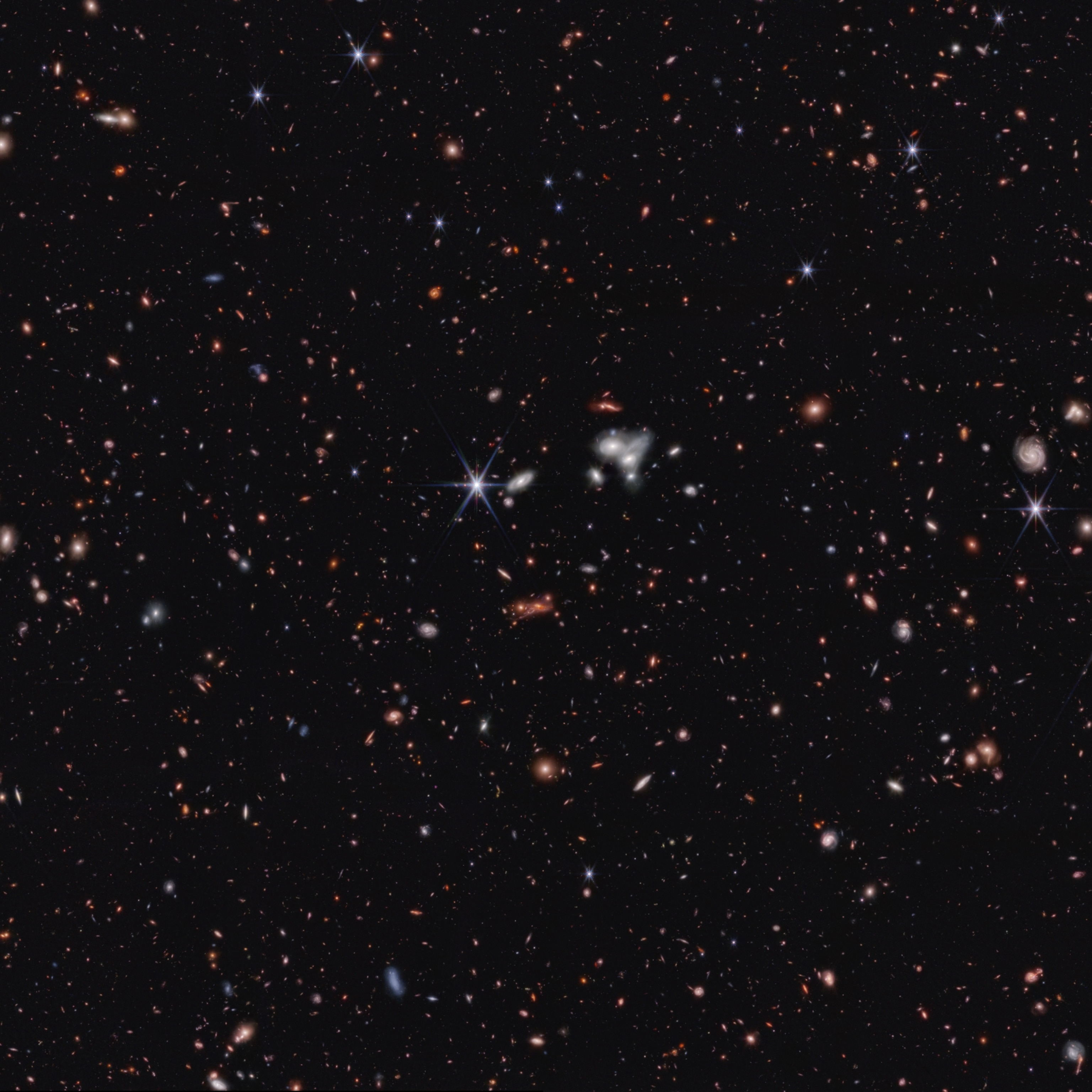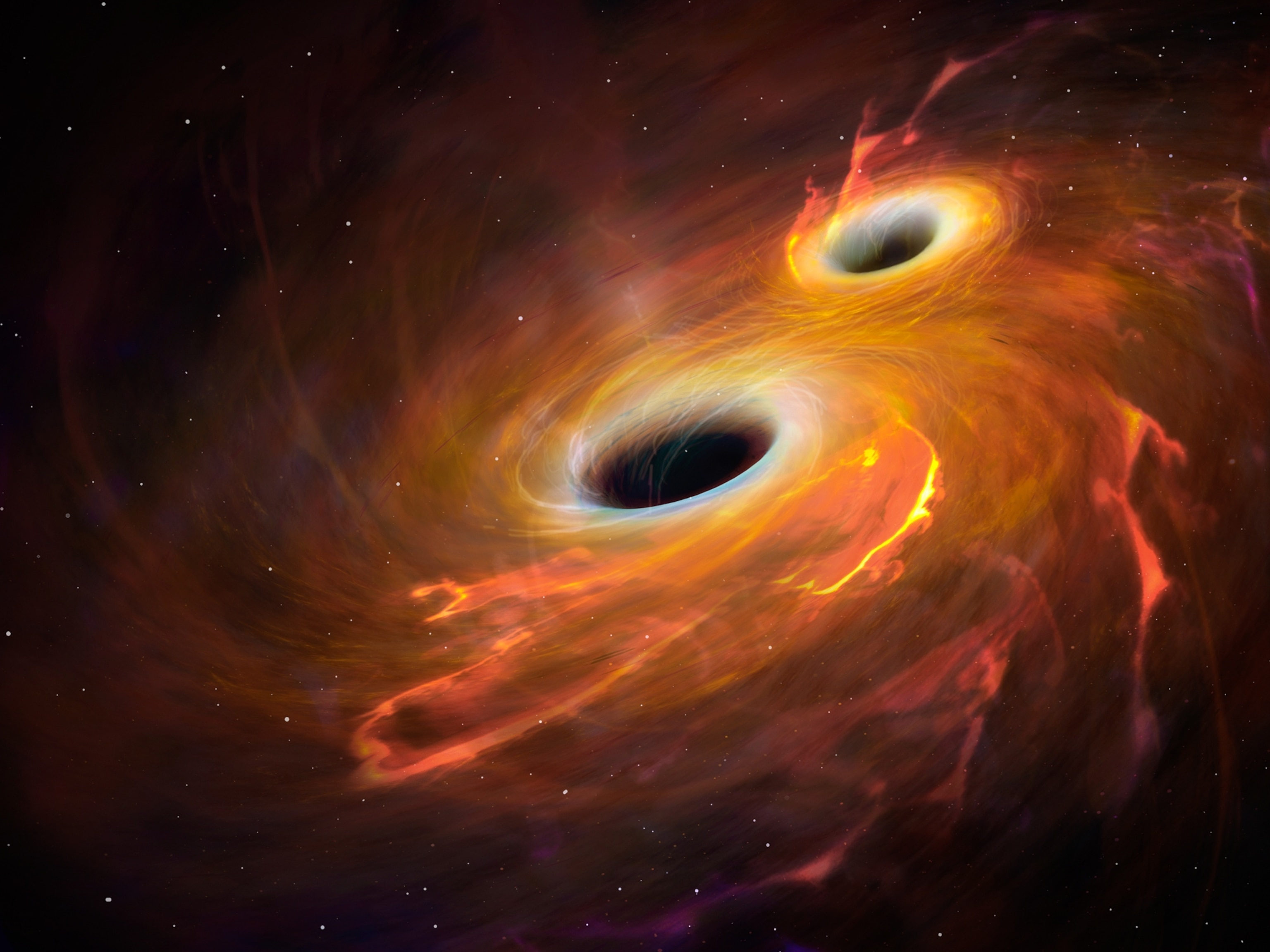
No Black Holes Exist, Says Stephen Hawking—At Least Not Like We Think
Black holes do not have "event horizons" beyond which there is no return, according to renowned physicist.
Black holes do not exist—at least, not as we know them, says renowned physicist Stephen Hawking, potentially provoking a rethink of one of space's most mysterious objects.
A new study from Hawking also says that black holes may not possess "firewalls," destructive belts of radiation that some researchers have proposed would incinerate anything that passes through them but others scientists deem an impossibility.
(Editor's note: Watch for our feature "The Truth About Black Holes" in the March issue of National Geographic magazine, out February 15.)
The conventional view of black holes posits that their gravitational pull is so powerful that nothing can escape from them—not even light, which is why they're called black holes. The boundary past which there is supposedly no return is known as the event horizon.
In this conception, all information about anything that ventures past a black hole's event horizon is destroyed. On the other hand, quantum physics, the best description so far of how the universe behaves on a subatomic level, suggests that information cannot ever be destroyed, leading to a fundamental conflict in theory.
No Event Horizons
Now Hawking is suggesting a resolution to the paradox: Black holes do not possess event horizons after all, so they do not destroy information.
"The absence of event horizons means that there are no black holes, in the sense of regimes from which light can't escape," Hawking wrote in a paper he posted online on January 22. The paper was based on a talk he gave last August at a workshop at the Kavli Institute for Theoretical Physics in Santa Barbara, California.
Instead, Hawking proposes that black holes possess "apparent horizons" that only temporarily entrap matter and energy that can eventually reemerge as radiation. This outgoing radiation possesses all the original information about what fell into the black hole, although in radically different form. Since the outgoing information is scrambled, Hawking writes, there's no practical way to reconstruct anything that fell in based on what comes out. The scrambling occurs because the apparent horizon is chaotic in nature, kind of like weather on Earth.
We can't reconstruct what an object that fell into a black hole was like based on information leaking from it, Hawking writes, just as "one can't predict the weather more than a few days in advance."
Firewalls Removed
Hawking's reasoning against event horizons also seems to eliminate so-called firewalls, which are searing zones of intense radiation that some scientists recently (and controversially) suggested may exist at or near event horizons.
To grasp the significance of this revision, it helps to know that Hawking revealed decades ago that black holes are not perfectly "black." Instead, they emit radiation just beyond their event horizons, the energy of their gravitational fields causing pairs of particles to pop into existence in the surrounding vacuum.
Over time, generating this so-called Hawking radiation makes black holes lose mass—or even completely evaporate.
According to this theory, the pairs of particles created around black holes should be entangled with each other. This means the behavior of each pair's particles is connected, regardless of distance. One member of each pair falls into the black hole while the other escapes.
But recent analyses suggest that each particle leaving a black hole must also be entangled with every outgoing particle that has already left. This runs head-on into a well-tested principle of quantum physics stating that entanglement is always "monogamous," meaning two particles, and only two, are paired from the time of their creation.
Since no particle can have two kinds of entanglement at the same time—one pairing it with another particle at the time of its origin, and one pairing it with all other particles that have left a black hole—one of those entanglements theoretically must get uncoupled, releasing vast amounts of energy and generating a firewall.
Firewalls obey quantum physics, solving the conundrum black holes pose regarding entanglement. But they pose another problem by contradicting Einstein's well-tested "equivalence principle," which implies that crossing a black hole's event horizon should be an unremarkable event. A hypothetical astronaut passing across an event horizon would not even be aware of the transit. If there were a firewall, however, the astronaut would be instantly incinerated. Since that violates Einstein's principle, Hawking and others have sought to prove that firewalls are impossible.
"It almost sounds like he is replacing the firewall with a chaos-wall," said Kavli Institute physicist Joe Polchinski, who did not participate in Hawking's work.
Open Questions
Although quantum physicist Seth Lloyd of the Massachusetts Institute of Technology felt Hawking's idea was a good way to avoid firewalls, he said it doesn't really address the problems that firewalls raise.
"I would caution against any belief that Hawking has come up with a dramatic new solution answering all questions regarding black holes," said theoretical physicist Sean Carroll at the California Institute of Technology, who did not participate in this study. "These problems are very far from being resolved."
Theoretical physicist Leonard Susskind at Stanford University in California, who also did not take part in Hawking's research, suggests there may be another solution to the conundrums that black holes pose. For instance, work by Susskind and his colleague Juan Maldacena hint that entanglement might be linked to wormholes: shortcuts that can in theory connect distant points in space and time. This line of thought might serve as the foundation for research that could solve the firewall controversy, Susskind said.
Theoretical physicist Don Page at the University of Alberta in Edmonton, Canada, noted that there will be no way to find evidence to support Hawking's idea in the immediate future. Astronomers will not be able to detect any difference in the behavior of black holes from what they have already observed.
Nevertheless, Hawking's new proposal "might lead to a more complete theory regarding quantum gravity that makes other predictions that are testable," Page said.
Carroll plans to keep an eye on Hawking in the days ahead: "It's very plausible Hawking has a much better argument that he hasn't yet gotten down on paper."
Related Topics
You May Also Like
Go Further
Animals
- Orangutan seen using plants to heal wound for first timeOrangutan seen using plants to heal wound for first time
- What La Palma's 'lava tubes' tell us about life on other planetsWhat La Palma's 'lava tubes' tell us about life on other planets
- This fungus turns cicadas into zombies who procreate—then dieThis fungus turns cicadas into zombies who procreate—then die
- How can we protect grizzlies from their biggest threat—trains?How can we protect grizzlies from their biggest threat—trains?
Environment
- What La Palma's 'lava tubes' tell us about life on other planetsWhat La Palma's 'lava tubes' tell us about life on other planets
- How fungi form ‘fairy rings’ and inspire superstitionsHow fungi form ‘fairy rings’ and inspire superstitions
- Your favorite foods may not taste the same in the future. Here's why.Your favorite foods may not taste the same in the future. Here's why.
- Are the Great Lakes the key to solving America’s emissions conundrum?Are the Great Lakes the key to solving America’s emissions conundrum?
- The world’s historic sites face climate change. Can Petra lead the way?The world’s historic sites face climate change. Can Petra lead the way?
History & Culture
- Meet the ruthless king who unified the Kingdom of Hawai'iMeet the ruthless king who unified the Kingdom of Hawai'i
- Hawaii's Lei Day is about so much more than flowersHawaii's Lei Day is about so much more than flowers
- When treasure hunters find artifacts, who gets to keep them?When treasure hunters find artifacts, who gets to keep them?
Science
- Why ovaries are so crucial to women’s health and longevityWhy ovaries are so crucial to women’s health and longevity
- Orangutan seen using plants to heal wound for first timeOrangutan seen using plants to heal wound for first time
Travel
- 5 of Uganda’s most magnificent national parks
- Paid Content
5 of Uganda’s most magnificent national parks - On this Croatian peninsula, traditions are securing locals' futuresOn this Croatian peninsula, traditions are securing locals' futures
- Are Italy's 'problem bears' a danger to travellers?Are Italy's 'problem bears' a danger to travellers?







